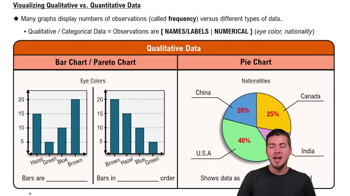Determine whether the study is an observational study or an experiment. Explain.
Researchers conduct a study to determine whether cataract surgery patients experience different comfort levels during their first and second surgeries. Researchers based their results on a verbal questionnaire. (Source: Medicine)






